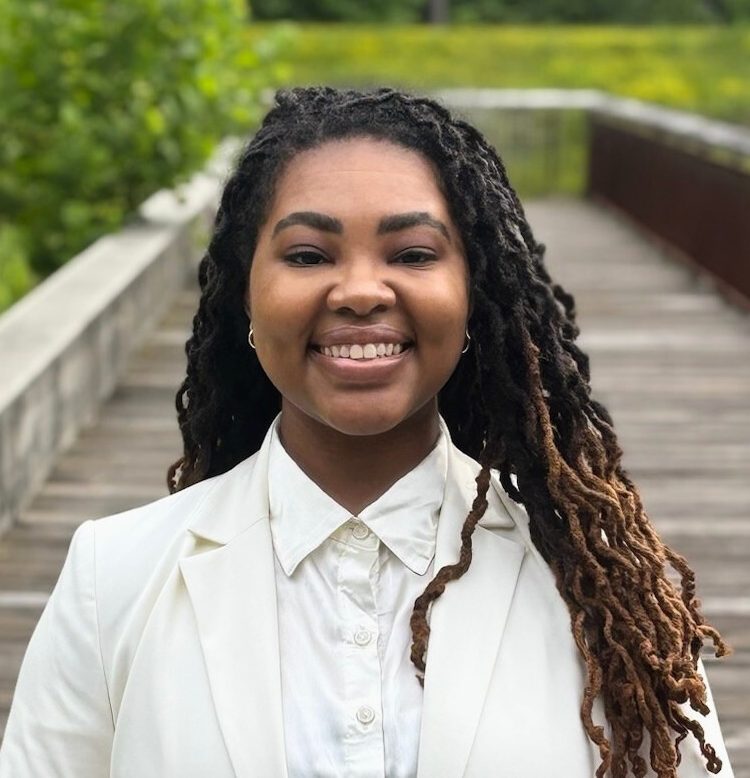Jaelyn Nixon didn’t plan on becoming a public policy scholar. She didn’t plan on teaching high school students research methods, either. But then again, her path has never really followed a straight line.
What has stayed consistent is her curiosity.
“I knew I wanted to study people,” says Nixon, a returning instructor to the Hank and Billye Suber Aaron Young Scholars Summer Research Institute and Doctoral Student in Public Policy and Psychology at Duke University. “But not just in the way psychology usually frames it. I’ve always been interested in systems, in how our environment shapes how we grow up, who we become, and what we think is possible.”
That instinct first took root at Tuskegee University, where Nixon majored in psychology and joined a maternal gatekeeping lab. The research focused on family dynamics: how and when mothers allowed fathers to be involved in raising children. “It was such a specific topic,” she says, laughing, “but it opened my mind to how behavior is never just about the individual. It’s about structures, too.”
That idea stuck. At Georgia Southern University, she earned a master’s in experimental psychology and began to study political psychology, diving into how public messaging could sway public opinion. One of her earliest research projects looked at the Make America Great Again (MAGA) slogan’s influence on juvenile sentencing. “I wanted to know how people made punishment decisions when they saw Black versus white kids, and how something like a campaign slogan could influence that,” she says.
Her work pushed her to ask deeper questions, some that couldn’t be answered just by psychology. “Public policy wasn’t on my radar at all,” she admits. “But I realized the kind of questions I wanted to ask weren’t just about internal biases, they were about systems and decisions and environments. Education felt like the next piece of the puzzle.”
In her doctoral work, Nixon focuses on K–12 education policy: how factors like school context, social messaging, and family background shape how young people form their identities, and how they show up in classrooms.
Which is also why she ventured into teaching high school participants in the Young Scholars program. “I get to test ideas,” she says. “I get to learn what resonates. And I get to remind students they’re allowed to be curious, too.”
She knows the material can be heavy. Talking about race, class, gender, policy, and power isn’t easy for anyone, let alone high school students. But that’s also why it matters. “They surprise you,” she says. “They’ll connect something from a reading to something from their lives and just, boom, it hits. That’s the moment I teach for.”
While Nixon is not a teacher in Durham Public Schools or a Durham native, she explains that with the program being important to students, teachers, and the Durham community, it is also impactful to researchers. As Jaelyn finishes her time at Duke, she’s already clear on what kind of scholar she wants to be. One who listens. One who learns from students. One who uses research to build something better.
And most importantly, one who understands that changing the system starts with understanding the people inside it.

